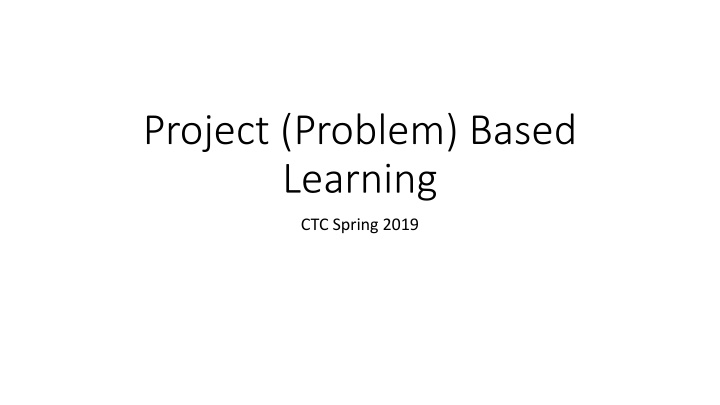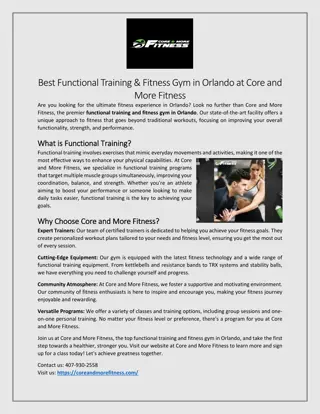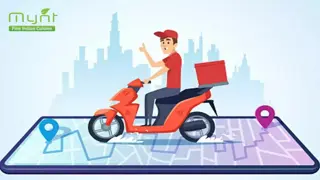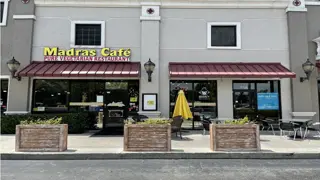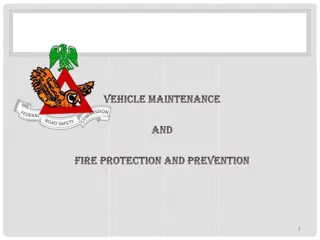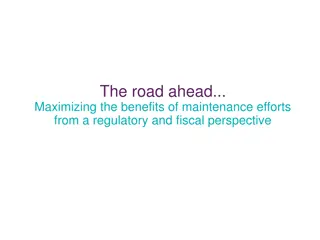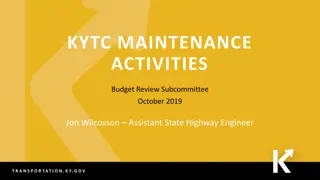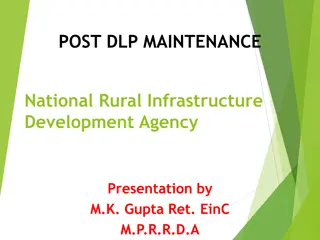2017 Southeastern Maintenance Conference in Orlando
This content discusses the review of current practices in pavement maintenance, exploring the use of high-performance pavement markings, cost analysis, and recommendations for policy revisions. It highlights the challenges faced and provides insights into alternative solutions for better efficiency and cost-effectiveness in pavement maintenance.
Download Presentation

Please find below an Image/Link to download the presentation.
The content on the website is provided AS IS for your information and personal use only. It may not be sold, licensed, or shared on other websites without obtaining consent from the author.If you encounter any issues during the download, it is possible that the publisher has removed the file from their server.
You are allowed to download the files provided on this website for personal or commercial use, subject to the condition that they are used lawfully. All files are the property of their respective owners.
The content on the website is provided AS IS for your information and personal use only. It may not be sold, licensed, or shared on other websites without obtaining consent from the author.
E N D
Presentation Transcript
Project (Problem) Based Learning CTC Spring 2019
What is PBL ? PBL is a student-centered approach in which students learn about a subject by working in groups to solve an open-ended problem. This problem is what drives the motivation and the learning. Some questions for today s discussion: Have you developed a course using PBL ? What tools/practices have you used ? Assessment of a PBL course ? Resources for PBL
Why use PBL ? A well-designed PBL project provides students with the opportunity to develop skills related to (Nilson 2010): Working in teams, Managing projects and holding leadership roles. Oral and written communication. Self-awareness and evaluation of group processes. Working independently. Critical thinking and analysis, Explaining concepts. Self-directed learning, Applying course content to real-world examples. Researching and information literacy. Problem solving across disciplines. Nilson, L. B. (2010). Teaching at its best: A research-based resource for college instructors (2nd ed.). San Francisco, CA: Jossey-Bass.
Example of Curriculum Development in CS Teaching Computer Science through Problems, Not Solutions by Samuel B. Fee and Amanda M. Holland-Minkley, Washington & Jefferson College
Keys for PBL Success1 1. A realistic problem or project that aligns with students' skills and interests, and requires learning clearly defined content and skills. 2. Structured group work with groups of three to four students, with diverse skill levels and interdependent roles; team rewards; and individual accountability, based on student growth. 3. Multi-faceted assessment, with multiple opportunities for students to receive feedback and revise their work (e.g., benchmarks, reflective activities); multiple learning outcomes (e.g., problem-solving, content, collaboration); and presentations that encourage participation and signal social value (e.g. exhibitions, portfolios, performances, reports). 4. Participation in a professional learning network, including collaborating and reflecting upon PBL experiences in the classroom with colleagues, and courses in inquiry-based teaching methods. 1 https://www.edutopia.org/pbl-research-learning-outcomes
Resources About PBL & How To Begin Implementing PBL Edutopia PBL Resources PBL Documents from Buck Institute for Education (BIE) Previously developed PBL activities can be found online through the University of Delaware s PBL Clearinghouse of Activities. PBL Assessment PBL for CS courses Teaching Computer Science through Problems, Not Solutions by Samuel B. Fee and Amanda M. Holland-Minkley, Washington & Jefferson College Problem-Based Learning for Foundation Computer Science Courses from Basser Department of Computer Science The University of Sydney
